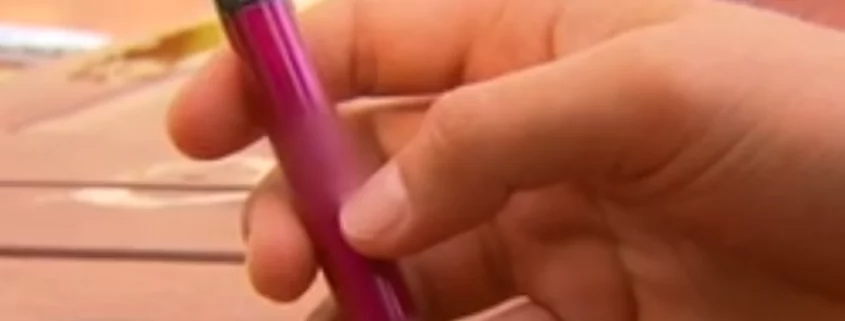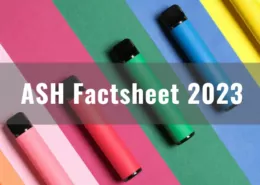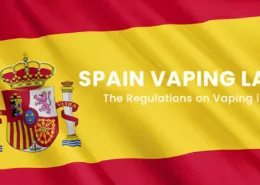Australia’s Vaping Import Ban: Latest Policy Changes and What They Mean
New vaping reforms announced by the Australian government have caused concern among vapers in the country. The planned restrictions, which will include a ban on importing nicotine and non-nicotine vaping products except for pharmacies, have raised questions about what exactly will be affected. Here’s what we do know, and what is yet to be decided.
What Is the New Policy?
The Australian government has banned the importation of nonprescription vaping products, including those that do not contain nicotine. Quality standards for vapes will be introduced, including restricting flavours, colours and other ingredients. Vape products will require pharmaceutical-like packaging, and the allowed nicotine concentrations and volumes will be reduced. All single-use, disposable vapes will also be banned.
The aim is to make it easier for smokers wanting to quit tobacco smoking to get a prescription and to understand the contents of the vaping products they then buy. Currently, a medical practitioner has to apply for authority to become an “authorised prescriber” of nicotine vaping products; under the reforms, all GPs will be able to provide a prescription.
Will People Be Fined for Vaping on the Street Without a Prescription?
According to Federal Health Minister Mark Butler, the focus of these reforms is on importers and vendors, not consumers. It is already illegal to sell vapes to under-18s, despite flouting these regulations by falsely selling nicotine-containing products as “nicotine-free”. There are no laws in place in any state to penalize people for using vapes.
The laws focus on vendors, not on people or customers or on children. The government hopes that stopping all imports at the border, aside from those bound for pharmacies, will require fewer resources to police vendors. However, there needs to be a set of strong penalties against vendors who breach this new law.
Is the Government Only Targeting Vaping Liquid, or the Devices Too?
The intention is to restrict all products used for vaping, including devices, e-liquids and pods.
How Will These Reforms Be Enforced at the Retail Level?
The states and territories need to work out the penalty regime details with the federal government. The government hopes that by stopping all imports at the border, aside from those bound for pharmacies, there will be less resources required to police vendors.
Why Can People Buy Cigarettes From a Retailer But Not Vapes?
According to Butler, there is no plan to follow New Zealand in outlawing cigarettes. The government is targeting vapes because of their uptake by children. Tobacco remains the leading preventable cause of death and disease in Australia. Cigarettes are not being marketed as aggressively towards children in Australia and are not the cause of significant behavioural problems.
Cigarettes are also cost-prohibitive to most children, and unfortunately, some parents are allowing their children to vape under the belief the products are safe. The government is funding a vaping education campaign as part of their reforms, as well as measures to control tobacco, such as a tax hike.
When Will The Measures Take Effect?
While Butler has said that the reforms will be implemented with urgency, the commonwealth, states, and territories are still working on the precise terms of the regulations. There may be a transition period, and new legislation will be required.
Conclusion
The Australian government’s new vaping reforms have raised questions about how it will affect vapers in the country. In general, it seems the focus is on importers and vendors, with fewer resources required to police vendors who breach the new law. While it is still uncertain when the measures will take effect and the precise terms of the new regulations, the aim is to make it harder for vaping products to get to children.
FAQs
What does Australia’s new vaping import ban include?
The Australian government has banned the importation of non-prescription vaping products, including those that do not contain nicotine. Quality standards for vapes will be introduced, and single-use, disposable vapes will be banned.
Will people be fines for vaping on the street without a prescription?
No, the focus of these reforms is on importers and vendors, not consumers.
Is the government only targeting vaping liquid, or the devices too?
The intention is to restrict all products used for vaping, including devices, e-liquids and pods.
Why is the government targeting vapes and not cigarettes?
The government is targeting vapes because of their uptake by children. Cigarettes are not being marketed as aggressively towards children in Australia and are not the cause of significant behavioural problems.
When will the measures take effect?
While the reforms will be implemented with urgency, the commonwealth, states, and territories are still working on the precise terms of the regulations. There may be a transition period and new legislation will be required.
- Malaysian Sarawak Considers Banning Vape Product Sales - July 18, 2025
- FDA Authorized E-Cigarette List: What’s Really Included?(Updated July 2025) - July 18, 2025
- FDA Authorizes Juul’s Tobacco and Menthol E-Cigarettes for US Market - July 18, 2025









